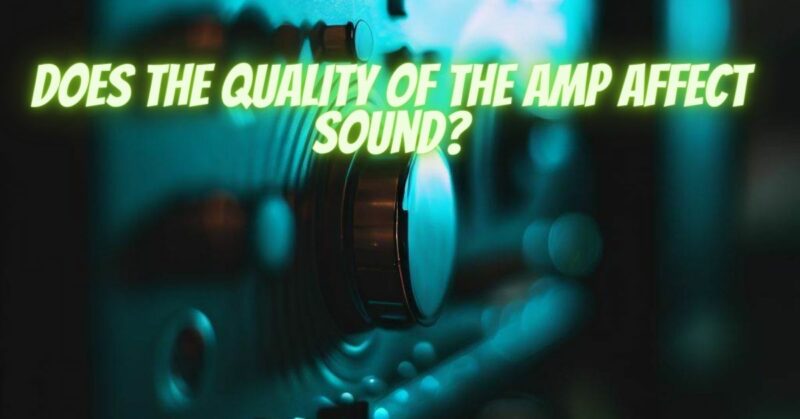In the world of music, the sound of an electric guitar is not solely determined by the instrument itself; the amplifier plays a pivotal role in shaping the sonic identity. The quality of the amplifier can significantly impact the sound, tone, and overall experience of playing. This article delves into the intricate relationship between the quality of the amplifier and its influence on the sound of an electric guitar.
The Amplifier’s Role in Sound Shaping
An amplifier is more than just a volume booster; it acts as a sonic sculptor, enhancing and refining the guitar’s natural tones. The amplifier takes the electrical signal produced by the guitar’s pickups and transforms it into audible sound through a combination of electronics, amplification components, and speaker systems.
Tonal Characteristics
The quality of an amplifier can dramatically influence the tonal characteristics of the electric guitar. Here’s how:
- Frequency Response: High-quality amplifiers offer a balanced frequency response, ensuring that the lows, mids, and highs of the guitar’s sound are accurately reproduced. This results in a more natural and well-rounded tone.
- Tonal Coloration: Different amplifier types, such as tube, solid-state, and digital modeling, impart their own tonal coloration to the sound. For example, tube amplifiers are known for their warm and rich tones, while solid-state amps tend to be cleaner and more precise.
- Dynamic Range: Quality amplifiers provide a wide dynamic range, allowing the player to express both soft and loud playing with clarity. This dynamic response contributes to expressive playing and a nuanced sound.
Effects and Sound Texture
High-quality amplifiers often feature built-in effects and sound processing capabilities. These effects, such as reverb, delay, and distortion, can significantly alter the sound’s texture, adding depth and dimension to the guitar’s voice.
Signal Fidelity
An amplifier’s components and build quality can impact the fidelity of the signal it amplifies. High-quality amplifiers are designed to faithfully reproduce the nuances of the guitar’s sound without introducing unwanted noise, distortion, or coloration.
Interaction with the Guitar
The interaction between the amplifier and the electric guitar is a dynamic one:
- Accentuating Guitar Characteristics: A quality amplifier can bring out the unique tonal characteristics of the guitar. It highlights the instrument’s tonewoods, pickups, and construction, allowing the player’s instrument of choice to shine through.
- Customization and Control: High-quality amplifiers provide extensive controls, such as EQ adjustments, gain settings, and effects parameters. This level of customization enables players to tailor the sound to their desired tonal palette and genre.
The quality of the amplifier undeniably affects the sound of an electric guitar. From shaping tonal characteristics to adding effects and enhancing signal fidelity, the amplifier serves as a powerful tool for musicians to craft their sonic identity. Investing in a quality amplifier can result in a more immersive and expressive playing experience, allowing the player’s creativity and passion to shine through in every note. Just as a painter relies on quality brushes to bring a canvas to life, a musician relies on a quality amplifier to bring their music to life.


